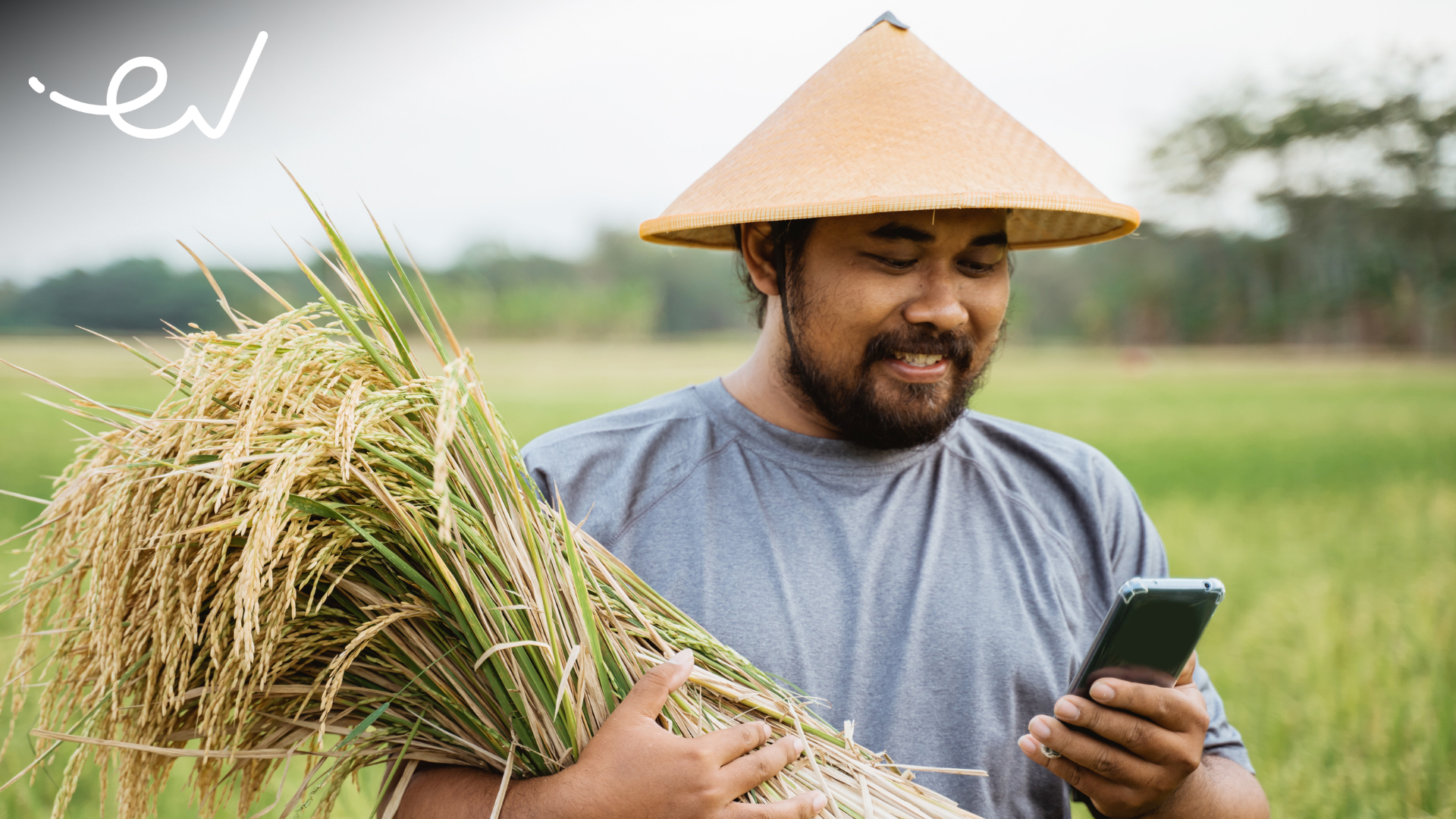Fintech lending expands financial access and improves agricultural productivity
Agriculture plays a significant role in Indonesia’s economic growth and development. It contributed to 14% of the nation’s GDP in 2020, and the sector employs 29% of the Indonesian workforce. However, most Indonesian farmers are still living in poverty. According to World Bank’s data, around half of the Indonesian farmers are smallholders that earn an average of US$ 3.2 per day. A similar condition can be observed in the fishery sector, in which around 11.34% of people in Indonesia’s fisheries sector are classified as poor.
Several factors cause poverty for workers in this industry, including the lack of digital optimization, supply chain issues, and lack of financial access. In terms of financial access, only 5% of lending goes to the sector. The industry predominantly consists of smallholder farmers, most of whom don’t have formal titles to their land, an important value that can be used to collateralize agricultural investment. This current issue has complicated Indonesia’s smallholders access to rural credit.
In terms of agricultural production issues, there is a time lag between the input investment and profit realization. Moreover, the weather shocks could harm yield. These two factors create interlocking problems on the supply and market sides. Financial institutions face systemic risks in providing credit to agriculture. Meanwhile, farmers and fishermen face risks beyond their control in trying to finance the investments necessary to increase productivity.
The presence of fintech can actually bridge the gap of financial access in agribusiness, from financing to the technology support for increasing digitalization. According to the Fintech report: The Convergence of Digital Financial Service in 2021 showed about 3.6 million people or business units were potential markets to access financing from fintech. Of this total, 65% is from the agricultural sector, 32% is from the livestock sector, and 3% is from the fishery sector.
Both fintech and agritech can help manage agriculture-related risks by providing data to lenders for better underwriting and mitigating risks. A better understanding of farmers and fishermen’s production and financial capacity will allow more flexible forms of credit to be introduced to the Indonesian agri-business landscape.
“In the past, many fintech lending companies failed because credit scoring was impossible to do. However, it has become more feasible since 2019, as the supply chain was getting quite the crack-up, so there was a better way of assessing everybody’s creditworthiness. In agribusiness, fintech firms are already willing to do that, driven by the huge opportunity from the entrepreneurs. At the same time, the reason for the movement toward financial access and inclusion is because the tech adoption in the fintech and agritech industry has matured. Hence today is the time to give back and drive sustainability and financial inclusion to the marginalized groups of people in the lower pyramid,” said Melisa Irene, Partner at East Ventures.
Fintech has been proven to be the fastest-growing vertical in terms of funding rounds in Southeast Asia since last year. Indonesia alone boasted several mega-rounds of US$ 100 million and over being recorded across the region. In the first half of 2022, Indonesian fintech firms have raised a total of US$ 1.8 billion across 51 deals, surpassing the US$ 1.6 billion total funding in 2021. These include East Ventures’ payment gateway portfolio company Xendit, which logged the biggest deal in the first half of 2022 with US$ 300 million for its Series D funding.
Promoting fintech and agritech collaboration to boost financial inclusion in agriculture
As an early believer in Indonesia’s digital ecosystem since 2009, East Ventures continues to promote collaboration among our portfolio and beyond. This is reflected in the synergy between our fintech and agritech portfolio companies, which aims to bring rapid financial inclusion in the agribusiness sector.
I think the evolution is to work through collaborations with many of the fintech lenders in the agritech sector. P2P lending relies on agritech in terms of helping them curate, which farmers or fishermen are on a higher credit score, as the credit scoring is probably a bit different from others. It’s the more behavioral type and through qualitative and observation on the ground. Some techniques will require interviews with the people that they know and then all of these combined. It’s pretty impossible for just one tech player to do that, so they would work together with this.
For instance, the P2P lending platform, Komunal has disbursed loans to the agribusiness industry since the first quarter of 2020. The total loan disbursement to the sector has reached IDR 200 billion across the country, including East Indonesia. As of August 2022, the firm has 200 agribusiness entities as lenders. Among them are two of East Ventures’ agritech portfolio companies, Chickin and Pasarnow.
Komunal expects its financial assistance to drive the productivity of its lending clients. It collaborates with strategic partners in each sub-sector of the agribusiness industry to form an ecosystem from upstream to downstream to mitigate risks. “Through our funding, our clients have supported thousands of farmers in Indonesia,” Hendry Lieviant, Co-Founder and CEO of Komunal, said.
On the demand side, Chickin manages risk associated with fintech lending by thoroughly assessing farmers’ backgrounds, performance reports & indicators, and collateral. Chickin reports that their current loan demand is around 33 billion rupiah, while the loan demand for the entire serviceable market stands at 100 trillion rupiah for 170,000 farmers across Indonesia. In addition to loans, Chickin supports operations by providing IoT and SaaS technology to the farmers and advisory services, increasing their productivity and creditworthiness.
“With fintech, farmers can easily get working capital with easy requirements to fund their operational activities throughout the fast harvest cycle of poultry cultivation. Fintech and Chickin can help farmers with an off-take or buying scheme so, with this guarantee, they can focus on cultivation,” said Tubagus Syailendra, Co-Founder and CEO of Chickin.
In the fisheries sector, Aruna believes that Indonesia has enormous marine and fisheries potential that could be maximized with fintech intervention in providing access to capital. Indonesia has approximately three million fishermen, of which about 40,000 have joined the Aruna network. Aruna has set financial literacy and introduced technology to support the lending program implementation in coastal communities. Currently, Aruna collaborates with the sharia P2P lending platform, ALAMI supporting the financing for fishermen.
ALAMI started providing working capital to farmers in 2020 with the Buy Now, Pay Later (BNPL) model. Currently, it supports over 1,700 farmers with an estimated total exposure of 140 billion rupiah and aims to expand its reach to more sub-sectors of agriculture.
“Fintech can fill this gap by using agile and comprehensive data consolidation for risk assessment, alongside agritech that can provide technological solutions to transform the agricultural sector,” said Dima Djani, Co-Founder and CEO of ALAMI.
“We will keep promoting collaboration in our ecosystem, not just to help our portfolio companies with potential partnerships and driving sustainable businesses, but we also can bring broader financial inclusion to the groups of people in the lower pyramid,” Irene added.







